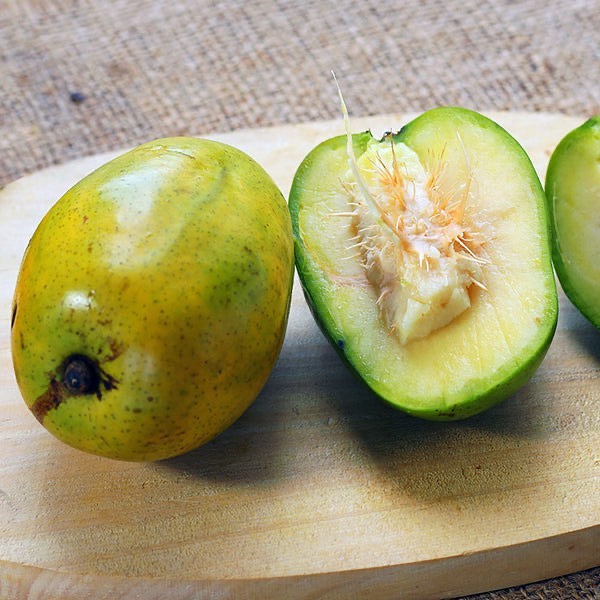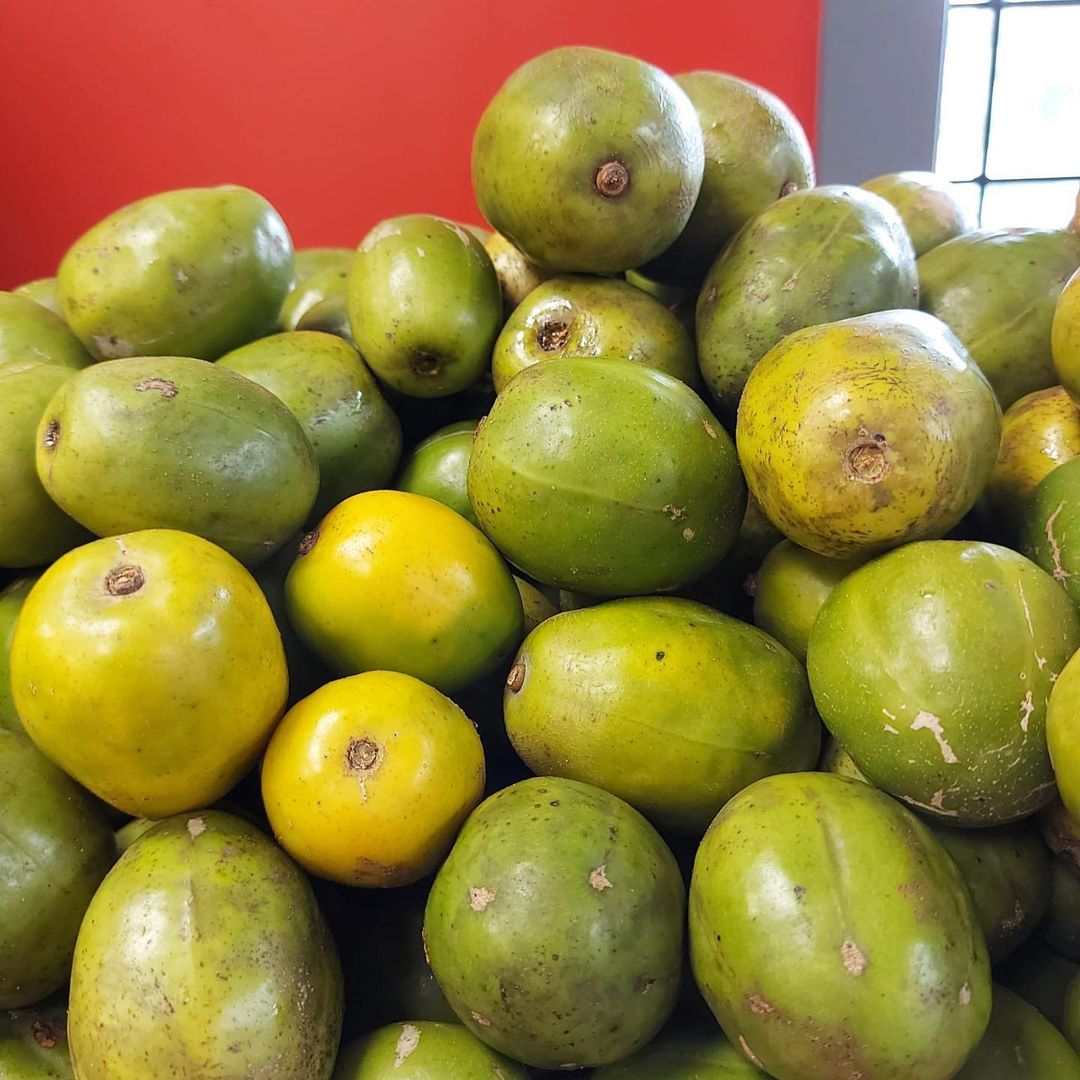For Jamaican youngsters, the arrival of summer ushers in a vibrant cornucopia of luscious fruits, each one a delightful treat eagerly awaited. Among this seasonal bounty, the June plum holds a special place, a beloved favorite that evokes nostalgic memories of carefree days spent savoring every last drop of its tantalizing juices.
A Tropical Gem with Many Names
Adorned with monikers as diverse as its flavors, this oval-shaped fruit is known by various names across the globe. In Jamaica, it is affectionately called the June plum, while other regions refer to it as the Ambarella, Golden Apple, Hog Plum, or Yellow Egg. Regardless of its name, this tropical gem is a true delight, boasting a firm flesh that surrounds a single, spiny seed at its core.
A Burst of Tangy Sweetness
One of the most alluring aspects of the June plum is its unique flavor profile, a tantalizing medley of sweet and tangy notes that tantalize the taste buds. Children in Jamaica relish the experience of indulging in these fruits, often savoring them with a generous sprinkling of salt to enhance their already delectable taste. The June plum’s flavor is a delightful amalgamation reminiscent of cherries, mangoes, pineapples, and star fruit, creating a truly one-of-a-kind experience.
Origins and Global Spread
While the June plum’s roots can be traced back to Southeast Asia, its journey has taken it far and wide. These tropical delights were introduced to Jamaica in 1872, where they thrived in the island’s warm, tropical climate. Over time, the June plum has found its way into the Caribbean and South American regions, becoming a beloved addition to the local culinary landscapes.
An Ornamental Variety
In an effort to cater to different preferences, an ornamental variety of the June plum has been developed, featuring a smaller tree and fruits. However, for many Jamaicans, the allure of the original, larger variety remains unmatched, and they continue to favor the traditional form of this beloved fruit.
 Nutritional Powerhouse
Nutritional Powerhouse
Beyond its irresistible taste, the June plum is a veritable treasure trove of essential nutrients. Unripe fruits are an excellent source of protein, while ripe ones are rich in Vitamins C and K, offering a host of health benefits.
- Vitamin C: This powerful antioxidant plays a crucial role in boosting the immune system, promoting healthy skin and hair, and facilitating wound healing.
- Vitamin K: Essential for maintaining strong bones and teeth, Vitamin K also aids in blood clotting and supports cardiovascular health.
Medicinal Marvels
The June plum’s benefits extend far beyond its nutritional value. This remarkable fruit possesses antibiotic properties that can help alleviate respiratory ailments and lower high blood pressure. Additionally, its regular consumption is believed to provide relief from various conditions, including constipation, diabetes, headaches, heart issues, and urinary tract problems.
But the June plum’s medicinal prowess doesn’t stop there. Its bark, leaves, and roots are utilized in traditional remedies for treating mouth sores, diarrhea, and skin irritations. Furthermore, the leaves, when boiled, are reputed to possess moisturizing properties, making them a valuable addition to natural skincare routines.
Culinary Versatility
While many Jamaicans relish the simple pleasure of plucking June plums straight from the tree and savoring their delectable flavors, this versatile fruit lends itself to a wide array of culinary applications.
Refreshing Beverages
One of the most popular ways to enjoy the June plum is in the form of a refreshing drink. By blending the fruit with water or other ingredients, Jamaicans create a thirst-quenching beverage that perfectly complements the island’s tropical climate.
Jams, Chutneys, and Sauces
The June plum’s unique flavor profile also lends itself beautifully to the creation of jams, chutneys, and sauces. These condiments not only add a burst of tropical flavor to various dishes but also serve as a delightful accompaniment to meats and seafood.
Cultivation and Availability
While the June plum is not commercially cultivated on a large scale, it is widely grown in home gardens and small farms throughout Jamaica and the Caribbean region. The trees thrive in warm climates and can reach impressive heights of up to 60 feet (18 meters).
The June plum’s peak season typically falls between October and November, with the trees beginning to flower in June. By mid-October, the fruits are fully mature and ready for harvest, continuing their availability until mid-January.
Embracing Nature’s Gifts
As with many natural treasures, the June plum serves as a reminder of the importance of embracing and appreciating the gifts that nature bestows upon us. Its vibrant flavors, nutritional benefits, and cultural significance all contribute to making it a true gem in the culinary landscape of Jamaica and beyond.
By celebrating and preserving traditions surrounding the June plum, we not only honor the island’s rich heritage but also ensure that future generations can continue to experience the joy and delight that this tropical fruit has brought to so many.
Conclusion
The Jamaican June plum is a true embodiment of the island’s vibrant culture and natural bounty. From its tantalizing flavors to its medicinal properties, this tropical delight has captured the hearts and palates of generations. As you immerse yourself in the world of June plums, take a moment to savor not only their delectable taste but also the rich tapestry of traditions and memories they represent. Embrace the joy of indulging in nature’s gifts, and let the June plum be a reminder of the wonders that await when we celebrate the beauty and diversity of our world.
For recommendations on some of the best times to visit Jamaica, you can check out our guide here.
—
If you’re traveling to Jamaica alone, ensure you take all the necessary measures to keep safe. Read about how you can stay safe while visiting Jamaica. If you decide to visit any resort, be sure to tag us in your photos and videos @resortcaribbean, and follow our socials: Instagram, Facebook, YouTube.







![What You Need to Know before Visiting Azul Beach Resort Negril Jamaica Gourmet All-Inclusive [Resort Review] Azul Beach Resort Pool](https://resortcaribbean.co/wp-content/uploads/2021/09/20210828_091210-2-100x70.jpg)
![Visiting Ocean Coral Spring – One of Jamaica’s Most Famous Resorts [Resort Review] Visiting Ocean Coral Spring - One of Jamaica's Most Famous Resorts](https://resortcaribbean.co/wp-content/uploads/2021/11/20211106_155809-scaled-e1716408051807-100x70.jpg)
[…] About the Jamaican June Plum […]